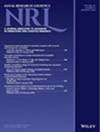企业多元化的市场信念可以促进信息共享,提高利润绩效
IF 2.1
4区 管理学
Q3 OPERATIONS RESEARCH & MANAGEMENT SCIENCE
引用次数: 0
摘要
供应商通过零售商向需求不确定的市场销售产品。零售商有一个信号,用于更新市场不确定性的预测,而供应商可以提供支付来获取零售商的信号,称为信息共享。由于市场准入手段和数据分析方法的不同,供应商和零售商对市场状况持有不同的信念。企业对市场状况更有信心,因为它认为市场的不确定性减少了。供应商可能知道或不知道零售商的市场信念。在前一种情况下,供应商正确地预测了零售商基于信念的反应,并做出相应的决策。在后一种情况下,供应商从零售商关于信号披露的决定中推断出零售商的市场信念。我们揭示了供应商获得零售商信号的具体情况,当他们持有同样准确的市场信念时,这种情况不会发生。此外,以实际利润表现为衡量标准,公司可以从持有不同的市场信念中受益,尽管不是同时受益。供应商对零售商市场信念的了解可以促进信息共享,但可能对企业的实际利润表现产生不利影响。如果有机会,零售商可能报告的市场信念比其与供应商沟通的真实市场信念更不自信,这可能会阻止信息共享,但对公司的利润有复杂的影响。本文章由计算机程序翻译,如有差异,请以英文原文为准。
Firms' diverse market beliefs can facilitate information sharing and improve profit performance
A supplier sells a product through a retailer to the market with uncertain demand. The retailer has a signal useful for updating the forecast of market uncertainty, while the supplier can offer a payment to acquire the retailer's signal, termed information sharing. Due to differential means of market access and methods of data analysis, the supplier and the retailer hold diverse beliefs about market conditions. A firm is more confident about market conditions as it perceives the market to be less uncertain. The supplier can be either aware or unaware of the retailer's market belief. In the former case, the supplier correctly predicts the retailer's belief-based response and makes decision accordingly. In the latter case, the supplier infers the retailer's market belief from the retailer's decision about signal disclosure. We unveil the concrete circumstances where the supplier gains access to the retailer's signal, which would not occur when they held the same accurate market belief. Moreover, with the actual profit performance as the measure, the firms can benefit from holding diverse market beliefs, albeit not simultaneously. The supplier's knowledge of the retailer's market belief can facilitate information sharing but can have detrimental effects on the firms' actual profit performance. Given the opportunity, the retailer may report a market belief that is less confident than its real market belief in communicating with the supplier, which can deter information sharing but has intricate effects on the firms' profits.
求助全文
通过发布文献求助,成功后即可免费获取论文全文。
去求助
来源期刊

Naval Research Logistics
管理科学-运筹学与管理科学
CiteScore
4.20
自引率
4.30%
发文量
47
审稿时长
8 months
期刊介绍:
Submissions that are most appropriate for NRL are papers addressing modeling and analysis of problems motivated by real-world applications; major methodological advances in operations research and applied statistics; and expository or survey pieces of lasting value. Areas represented include (but are not limited to) probability, statistics, simulation, optimization, game theory, quality, scheduling, reliability, maintenance, supply chain, decision analysis, and combat models. Special issues devoted to a single topic are published occasionally, and proposals for special issues are welcomed by the Editorial Board.
 求助内容:
求助内容: 应助结果提醒方式:
应助结果提醒方式:


